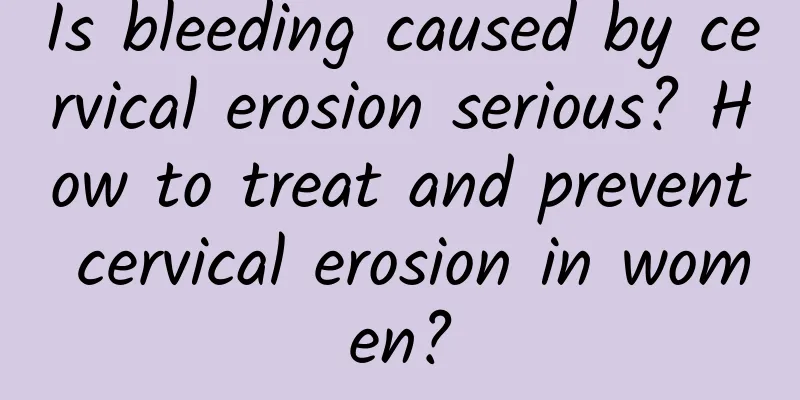How to treat habitual spontaneous abortion? What are the causes?

|
For habitual abortion, the treatment is mainly based on the cause of habitual abortion. For habitual abortion caused by genetic factors, it needs to be treated through assisted reproductive technology. For habitual abortion caused by anatomical factors, infection factors or other factors, the appropriate method should be selected for symptomatic treatment according to the actual situation of the disease. Habitual miscarriage is relatively common. Genetic factors and inflammatory infections are common causes of the disease. Too many habitual miscarriages will affect women's physical health and induce infertility. Some women will have miscarriages again even after they become pregnant. Therefore, for habitual spontaneous abortions, necessary measures need to be taken to treat them. So, how should habitual miscarriage be treated? |
<<: How to protect the fetus in case of habitual miscarriage? You must do these things well
>>: What are the late symptoms of habitual miscarriage? What tests are needed?
Recommend
Does anemia affect dysmenorrhea?
Does anemia affect dysmenorrhea? What are the cau...
Does weight loss lead to dry skin and premature aging? Nutritionist Zhao Hanying: 6 must-eat foods for weight loss and anti-aging
After many people who have successfully lost weig...
What should be paid attention to when BBT treats cervical erosion? Eight things to pay attention to when BBT treats cervical erosion
Young people nowadays think that they are healthy...
A brief introduction to the four main causes of cervicitis
As one of the possible causes of female infertili...
3 folk remedies for chronic cervicitis These three methods can eliminate cervical inflammation
Chronic cervicitis is the most common gynecologic...
Ovarian cysts can cause endocrine disorders
The good wife and mother turned into a fierce wom...
How to make endometrial tuberculosis care safer
Gynecologists say that women with endometrial tub...
What are the symptoms of ovarian cysts in women?
What are the symptoms of ovarian cysts in women? ...
Is endometrial tuberculosis curable?
Because the harm caused by endometrial tuberculos...
Will frequent sexual activity lead to cervical erosion? What are the factors that induce the recurrence of cervical erosion?
Patients with cervical erosion are mostly married...
Vaginal bleeding after abortion
Vaginal bleeding half a month after abortion may ...
Can women with chronic cervicitis get pregnant? There are four common types of damage caused by cervicitis in women.
Cervicitis is a common gynecological disease. Mos...
It only takes 1 minute to grow 2 cm taller? 3 types of "zero-position training" to make your body more attractive
In just one minute, you can increase your height ...
Breast cancer shakes off depression! Eat more spinach, bananas, cherries, 9 kinds of happy foods, and do aerobic exercise
Don’t worry about breast cancer! It is not only t...
What should women pay attention to when treating cervical erosion?
After the physical examination, the diagnosis of ...









